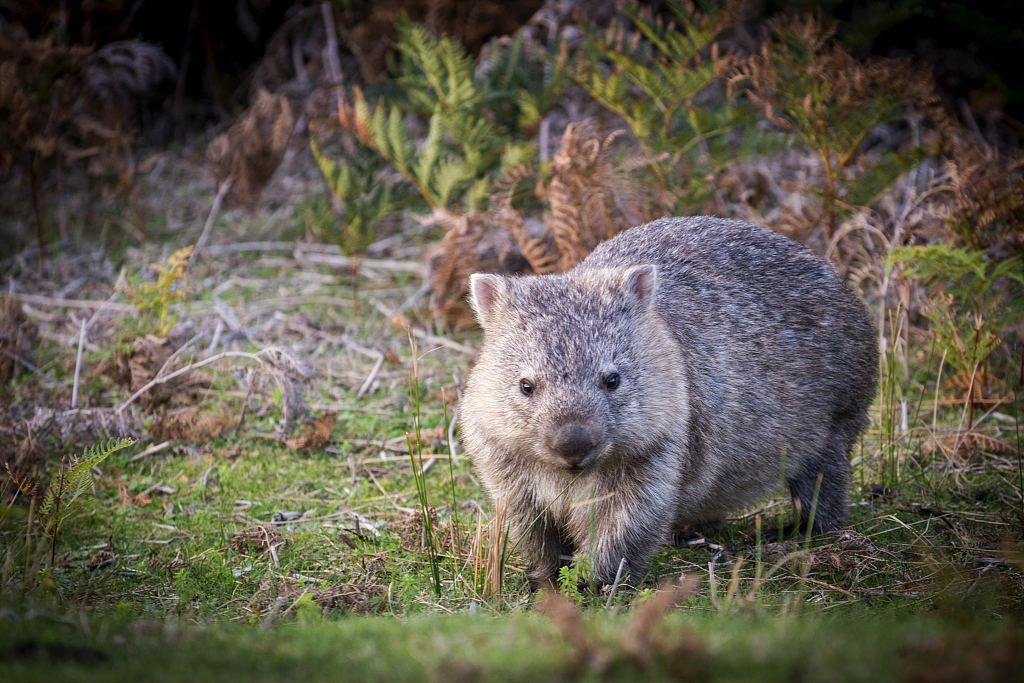
The fossilized jaw of a diprotodon, a member of Australia's now extinct megafauna, has been uncovered in a remote location in the southern state of New South Wales, the Australian Museum said on Friday.
Two council workers happened upon the 50 centimeter long jawbone piece at a location known for producing a significant number of fossil finds but which has been kept a secret from the public.
Australian Museum curator of palaeontology Matthew McCurry said that the jawbone likely belonged to a juvenile diprotodon, a member of Australia's megafauna which roamed the southern continent up until around tens of thousands of years ago.
"At the same time, as mammoths were roaming around in the Northern Hemisphere, Australia had its own unique species of giant marsupial," McCurry said.
"These were species like giant short-face kangaroos, or in this case, what we call the giant wombat."

File photo of a modern wombat in Australia. /VCG Photo
It is not known how closely related to modern wombats diprotodon actually were. However, due to what they are thought to have looked like, with short brown fur and a large round nose, the comparison has stuck.
McCurry explained that there remains a lot to learn about the diprotodon and Australia's megafauna in general, including what it was that wiped them out.
"The two main ideas about why they went extinct are firstly, they might have been hunted to extinction by humans and secondly, that they might have gone extinct due to fluctuations in the climate," McCurry said.
The fossil will be kept as part of the Australian Museum's research collection for further study.
(Top image: File photo of a modern wombat in Australia. /VCG Photo)
(If you want to contribute and have specific expertise, please contact us at nature@cgtn.com.)

Copyright © 2018 CGTN. Beijing ICP prepared NO.16065310-3
Copyright © 2018 CGTN. Beijing ICP prepared NO.16065310-3